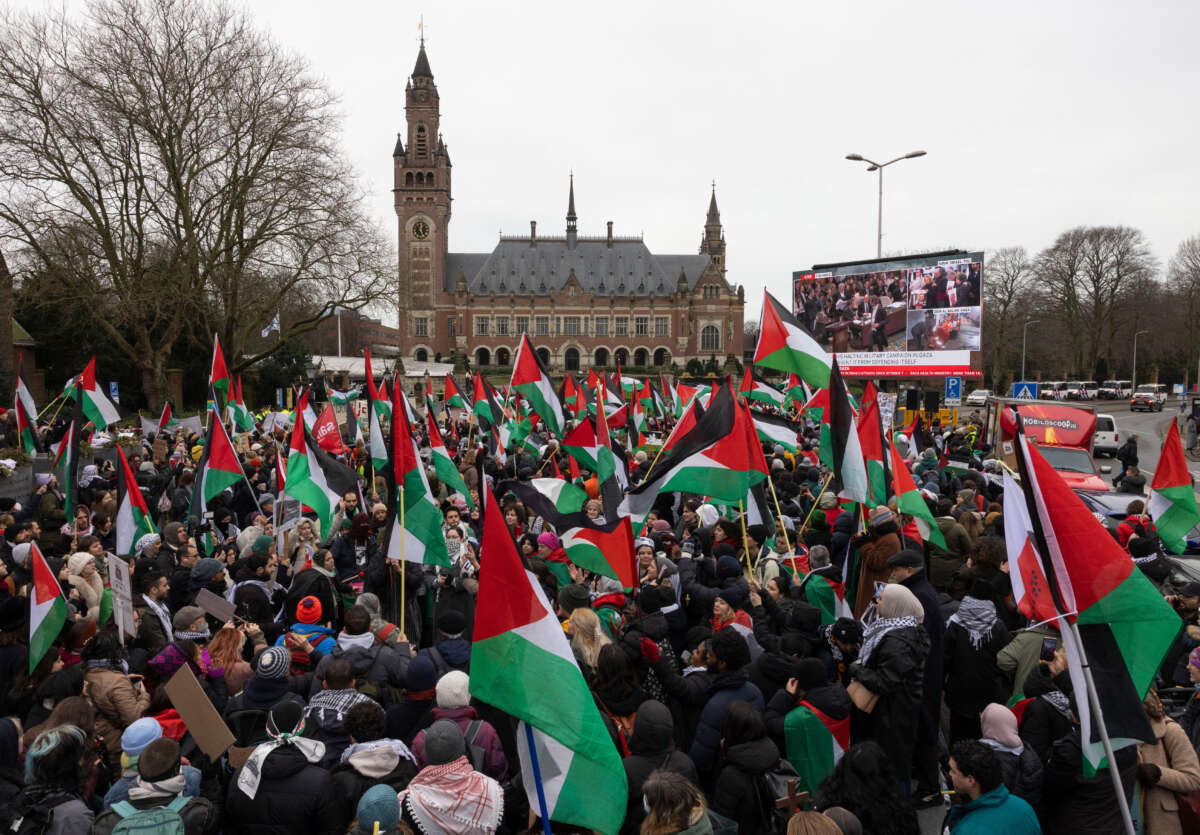The judge noted that the US government doesn’t dispute the uncontradicted evidence of a “genocide in progress.”
Mere hours after the International Court of Justice (ICJ) found a plausible case that Israel is committing genocide in Gaza, a historic hearing took place in a federal courtroom in Oakland, California. Several Palestinians who are suing President Joe Biden, Secretary of State Antony Blinken and Defense Secretary Lloyd Austin for failure to prevent genocide and complicity in genocide testified before district court Judge Jeffrey White in a live-streamed session.
“I have lost everything in this war,” plaintiff Dr. Omar Al-Najjar testified from a hospital in Gaza. “I have nothing but my grief. This is what Israel and its supporters have done to us.” Al-Najjar reported that conditions are so bad there is “widespread childbirth in the street.”
Read more